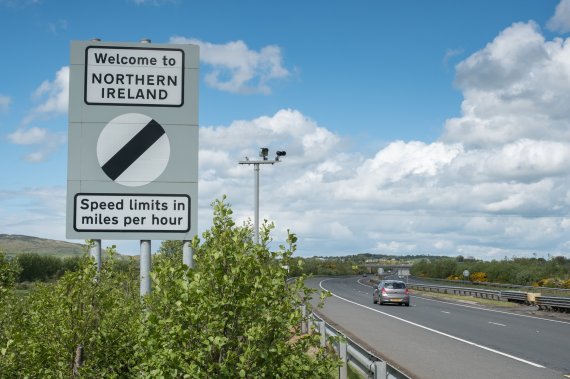© Shutterstock
‘The huge importance of a soft border can be traced back to the 1998 Good Friday Agreement. This document marks the end of The Troubles, a period with a lot of violence in Northern Ireland. My family have terrible memories from that time. I even had relatives on both sides of the conflict. Out of respect to those who passed away, we rarely talk about it.
As an open border is affirmed in the Good Friday document, the agreement would be violated if the open border were not maintained. Some people will likely see that as a justification for violence. Agreement on this issue between the EU and the UK therefore benefits many people, especially Northern Irish civilians, whose living conditions are at stake. For this reason, I think an “exemption status” for the Northern Irish is better defendable than for the Scottish, Welsh or Londoners. For the Northern Irish, it is for the sake of preventing casualties more than any other interest.
As I have barely any memories from the time before 1998, it seems natural for me to cross the Northern Irish border without giving it a second thought. However, in recent years I experienced some bus controls with passport checks, focussed on illegal migrants who want to enter the UK. Of course, this is related to a completely different problem, but it gave me this remarkable experience of the border. Also, I was told there was a lot of smuggling in the 1980s and 90s. But as the EU and the UK now seem to agree, those will likely remain stories from the past.’

